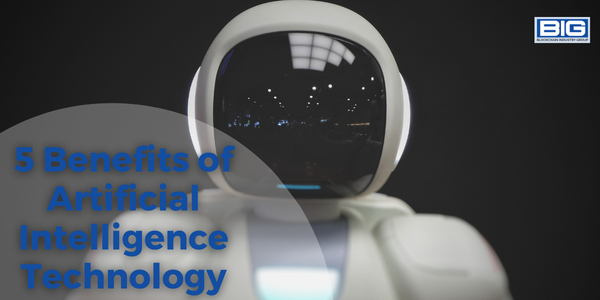
Artificial intelligence (AI) technology has the potential to revolutionize a wide range of industries by providing a range of benefits that can help organizations to operate more efficiently and effectively. These benefits can include improved decision-making, increased efficiency and productivity, enhanced customer experience, increased accuracy and precision, and improved predictive capabilities. By automating tasks and processes, providing personalized recommendations and responses, and analyzing data to make predictions, AI technology can help organizations to drive innovation and business growth. Overall, AI technology has the potential to significantly improve the way we work and live, driving progress and driving positive change.
Improved Decision-Making
Improved decision-making is one of the main benefits of using artificial intelligence (AI) technology. AI technology can help organizations to make better decisions by analyzing large amounts of data and identifying patterns and trends. This can be particularly useful in industries such as finance and healthcare, where large amounts of data need to be analyzed to make informed decisions.
For example, in finance, AI technology can be used to analyze market data and identify trends that can help inform investment decisions. In healthcare, AI technology can be used to analyze medical records and identify patterns that can help to identify potential health risks or predict the likelihood of certain health outcomes.
Increased Efficiency and Productivity
Increased efficiency and productivity is another major benefit of using artificial intelligence (AI) technology. AI technology can automate tasks and processes, freeing up human workers to focus on more complex and creative tasks. This can help to increase overall efficiency and productivity in a variety of industries.
For example, in manufacturing, AI technology can be used to automate repetitive tasks, such as quality control or assembly line processes. In customer service, AI technology can be used to handle routine inquiries, allowing human customer service representatives to focus on more complex issues.
Enhanced Customer Experience
Enhanced customer experience is another key benefit of using artificial intelligence (AI) technology. AI technology can be used to provide personalized recommendations and recommendations to customers, improving the overall customer experience.
For example, in e-commerce, AI technology can be used to analyze customer data and provide personalized recommendations based on previous purchases and browsing history. In customer service, AI technology can be used to provide personalized responses to customer inquiries, improving the overall customer experience.
Increased Accuracy and Precision
Increased accuracy and precision is another major benefit of using artificial intelligence (AI) technology. AI technology can perform tasks with a high degree of accuracy and precision, reducing the risk of errors and improving the overall quality of products and services.
For example, in manufacturing, AI technology can be used to improve the accuracy and precision of quality control processes, reducing the risk of defects and improving the overall quality of products. In healthcare, AI technology can be used to analyze medical data and identify patterns that can help to improve diagnosis and treatment plans.
OpenAI, Elon Musk, DALL-E and ChatGPT
—
Pros and Cons of Universal Basic Income
—
Revolutionizing Art: The Rise of Generative Art
Improved Predictive Capabilities
Improved predictive capabilities is another key benefit of using artificial intelligence (AI) technology. AI technology can be used to analyze data and make predictions about future trends and patterns. This can be useful in a variety of industries, including finance, healthcare, and marketing, where the ability to accurately predict future outcomes can be valuable.
For example, in finance, AI technology can be used to analyze market data and make predictions about future stock prices or economic trends. In healthcare, AI technology can be used to analyze patient data and predict the likelihood of certain health outcomes. In marketing, AI technology can be used to analyze customer data and make predictions about future purchasing behavior.



